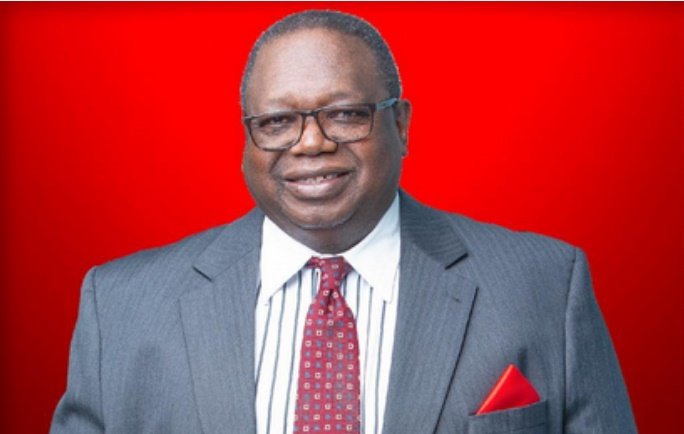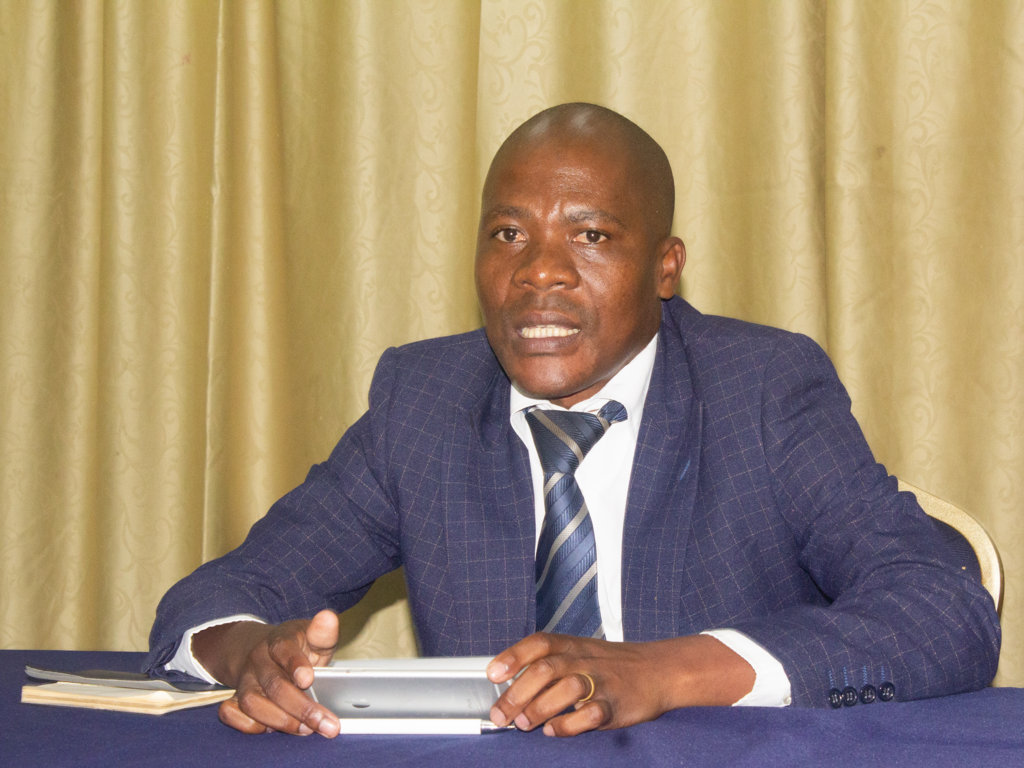“How will stakeholders trust a governor alleged to be an accomplice in leakage of privileged information?”
By Watipaso Mzungu

The Centre for Democracy and Economic Development Initiatives (CDEDI) has questioned the decision by the Governor of the Reserve Bank of Malawi, Dr. Wilson Banda, to keep quiet while officials at the central bank are leaking results of the forensic audit at the central bank.
Malawi Voice understands that the central bank has been conducing a forensic audit whose report is supposed to be released in February 2021.
However, some bits and pieces of the findings have already found their way to the social media.
This has raised the eyebrows of the CDEDI executive director, Sylvester Namiwa, who suspects that this could be a calculated move targeting specific individuals from one region and tribe.
Namiwa, in a statement released on Monday morning, says it is even mind boggling to note that Banda and his communications team at RBM have chosen to pretend that nothing has slipped through its fingers.
“This development leaves us with an impression that those people leaking the information are doing so under your watch, and to be raw, we believe this is a calculated move targeting specific individuals from one region and tribe, a very clear case of selective application of justice, which CDEDI is vehemently advocating against. As you are reading this letter, information regarding your salary and that of your predecessor, Dr. Dalitso Kabambe, is in the public domain, a development that is raising serious questions as to whether or not the bank must cough over MK180 million on external audit only to establish salaries of RBM Governor and a few other employees,” reads the statement in part.
Namiwa asks Banda to explain how people that are outside RBM could access privileged information, including knowing the agenda and venues for the bank’s meetings and employment contracts.
He wonders whether the final report of the forensic audit would gain public trust considering the manner it has been handled.
“Since banks handle information in their day-to-day work around highly confidential and rather very sensitive information, how would the RBM stakeholders, including commercial banks trust a governor who is an alleged accomplice in the leakage of information from the Central Bank?
“All these issues put to question your suitability to steer the RBM ship and undermine the Governor’s role as a Registrar of Financial Institutions. Secondly, CDEDI would like to bring to your attention part V section 6 of the RBM act subsection 3, which states that to ensure continuity, appointments and reappointments into the board shall be made in a such a way that at least one-half of the number of directors shall continue to serve on the board. Since highly confidential information is already in the public domain, and in the interest of transparency and accountability, CDEDI is challenging you sir, to inform the nation with proof that the RBM board did not violate its own act on the composition of the board,” challenges Namiwa.
He further brings to the attention of the RBM boss Section 4 (a) subsection 2 of the RBM Act, which talks about the independence of the bank.
The section in question says: ‘Any person who improperly seeks to influence the bank, or a director or employee of the Bank in its performance of its or his functions, commits an offence shall, on conviction, be liable to a fine of K1,000,000 and imprisonment for four years.’

Namiwa has therefore sought Banda’s clarification on why the Chief Internal Auditor had reservations with the hiring of Deliotte as external auditors to do forensic audit; why the auditors are reporting to the governor himself directly, when the standard governance practices demand that the Chief Internal Auditor (CIA) oversees the audit process and reports directly to the Board; and that Banda should prove CDEDI wrong that politics has taken centre stage at the central bank ‘since information is being leaked while the external auditor is doing their job’.
“We further seek your explanation on the deafening silence from your office at a time when private and confidential information has been leaked and is now in the public domain; why your office has accepted information such as your salary and that of your predecessor’s to be in the public domain when such information is supposed to be private and confidential; and why your office has chosen to use your entry salary as cap, to force officers with running contracts adjust their salaries in line with the cap.
“This is against existing salary structure within the bank, and if anything, it requires a review of the entire salary structure in order to achieve fairness as it were. You cannot isolate a few positions with employment contracts within the bank and force them to take salary cuts without any justifiable structure reviews, without consent of the individuals; this is against the labour laws. The bank ought to explain the reasons why people must take a salary cut, otherwise that’s an illegal move on the part of the bank,” demands Namiwa.
“CDEDI is, therefore, demanding your office to issue a statement to give the general public accurate information or risk being labelled as an accomplice in all this. CDEDI is looking forward to hearing from you, sir, in the next seven days on the issues that have been raised in this letter. You may also wish to know that this matter has attracted huge public interest and anxiety on whether or not the man at the helm of the monetary policy has the required integrity, competency and trust to steer the ship to safe waters or sink the same,” he adds.
On the other hand, CDEDI has written the Auditor Manager for Deloitte, expressing worry over the leakage of the bits and pieces of the audit before the final report has been released.
Namiwa says they are equally saddened to note that, as a reputable firm, they have not even raised a query when the audit reference focal point was changed from the suspended Chief Internal Auditor to the RBM Governor.
He argues that this alludes to interference on the part of the audit and puts the whole process into question as the Governor is a political appointee.
“CDEDI would like to refer your firm to an incident which happened at the KPMG in South Africa where the auditors’ reputation was shamefully soiled due to similar unprofessional conduct. It is very clear that the audit information is being leaked purposefully in order to victimise people from one region and tribe for political gains. It is our expectation and that of many Malawians of goodwill that Deliotte would not like to be dragged into disrepute due to the current developments taking place at the RBM.
“It is against this background that we challenge your good office to advise the central bank to publish a public statement to either explain or disassociate itself from such unethical and unprofessional conduct. CDEDI is looking forward to hearing from you in the next seven days on the issues that have been raised in this letter. You may also wish to know that this matter at hand has attracted huge public interest and anxiety, and that Malawians are waiting with baited breath on how your office is going to manage this situation,” concludes Namiwa.



real tribalism and nepotism at prey. who will be the next target as we draw closer to 2025? your gues is as good as mine. they have little things to do since their job has been hired to western administration consultants. big brains already warned but, ooops! we were engulfed by envy and ignorantly allowed those so called top clerics to divide us. the youth, we are still experimenting and soon we will come back to our senses but, very very late. kkkkkkk kkkkkkk.